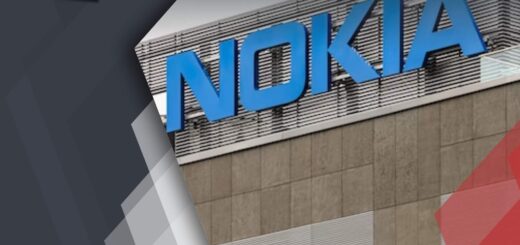Virtual “Intern”: An Integral Role AI Plays in Day-to-Day IP Processes
The meteoric evolution of Artificial Intelligence (AI) technologies is driving profound transformation across industries, fundamentally reshaping the way we work and innovate. At Sagacious IP, we are at the forefront of exploring and integrating generative AI tools into our strategic methodologies. Through our comprehensive AI experiments, we have uncovered three transformative roles, that AI can fulfill, each offering its unique advantages and potential for disruption.
- AI as an Intern: Automating mundane tasks, managing extensive datasets, and streamlining administrative processes, to free up human intellect for more creative endeavors.
- AI as an Expert: Harnessing its vast repository of data to provide deep analytical insights, predict trends, and offer solutions that might elude even seasoned professionals.
- AI as a Peer/Co-pilot: Working alongside human colleagues, AI brings a dynamic synergy to the table, combining the intuitive leaps of human thought with its computational precision.
In each of the role AI plays, it not only complements, but also enhances the capabilities of the teams, propelling towards a future, where innovation is not just imagined but realized.
Table of Contents
AI as an Intern: A Capable Learner Requiring Guidance
Generative AI technology, today possesses a wealth of knowledge but lacks real-world experience, akin to an intern. To unlock its full potential, it must be treated as such – provided with training, management, and iterative feedback. With the right guidance, AI can serve as a game-changing resource for IP teams. However, it’s crucial to understand that AI systems are not self-sufficient and rely heavily on human input to function effectively.
AI interns will inevitably make mistakes. Pointing out these errors and demanding better output enables the AI to learn and enhance its performance iteratively. As Mollick writes in his Substack, One Useful Thing,
“Unlike a person, the AI never gets discouraged, so you can ask for volume instead of aiming for a single perfect answer: give me 50 marketing slogans, rewrite this paragraph in 10 distinct styles, solve this data analysis problem in as many ways as possible.”
Use Cases for AI as an Intern in IP Processes
Generative AI is a capable learner, and eagerly absorbs knowledge from its mentors, offering organizations a valuable resource to help ease employees’ workloads. But just as you would never send out an intern’s work without checking it first, AI needs human supervision, training, guidance, and constant input to stamp out inaccuracies and add a perspective that comes from real experience.
Let’s see where AI can be leveraged as an intern in various IP processes, and the reasons why it is being used as an intern:
The Role AI Plays in First Pass HML Analysis for Portfolio Mining
Portfolio mining involves analyzing a portfolio of patents to identify potential infringement by other parties. AI, acting as an intern, can conduct preliminary infringement analysis by interpreting claim elements, preparing hypotheses, and considering inputs such as target companies. This initial analysis guides infringement analysts by providing potential leads and hypotheses.
Why only an intern?
The AI system’s role is complementary, not a complete replacement for experienced infringement analysts. Human experts are still essential for reviewing the AI’s findings. They review through the lens of deeper patent law expertise, nuanced claim interpretation, and assessing the materiality and boundaries of potential infringement. Human experts also apply case law precedents and legal tests, synthesize different evidentiary elements, and advise clients on licensing strategies. Additionally, they advise on litigation risks and commercial implications.
The Role AI Plays in Drafting a Provisional Patent Application
While a non-provisional patent application is subject to meticulous examination, a provisional patent application typically does not undergo such scrutiny. Our findings suggest that AI solutions can be effectively utilized to draft a complete provisional patent application, streamlining the patenting process. An AI system can automate key aspects like capturing invention details from inventors through natural language interactions. It can also automatically generate the specifications, claims, and drawing descriptions based on the captured information. It can also compile all elements into a standardized provisional application format, ready for final review and filing by patent professionals.
Why only an intern?
It’s important to have a feedback loop, where human experts can validate and refine the AI’s output. This feedback loop ensures the final provisional application meets all legal requirements for adequate disclosure and enablement.
Though this is the case for provisional applications; however, we should not rely on it fully for non-provisional applications.
Moreover, the analysts keep on having multiple discussions with the inventors, so they acquaint themselves with the invention. The AI drafting tools have more and more feedback capability. In this capability, the user can provide suggestions for customization.
The Role AI Plays in Creating Key Features for an Invalidity Search:
The initiation of an invalidity search hinges on the identification of precise key features that define the search’s scope. Traditionally, experienced analysts perform this task. AI, in its intern capacity, has demonstrated the ability to craft well-defined key features, thus providing a solid foundation for commencing a patent invalidity search.
GenAI systems can assist in distilling the key features from patent claims. AI can analyse the text, identify critical technical elements, and extract pertinent keywords and concepts. This automated feature extraction can expedite the process and enhance consistency, complementing the expertise of human analysts.
Why only an intern?
It is crucial to recognize that AI’s role in this process is primarily supportive, augmenting human expertise rather than replacing it entirely. Experienced analysts bring domain knowledge, legal acumen, and strategic thinking to the table. They ensure that the key features are not only technically accurate but also strategically aligned with the scope of the invalidity search.
Precautions to Take While Using AI as an Intern
AI can be a powerful tool. However, it’s essential to exercise caution and implement safeguards to ensure its responsible and ethical use.
- Use AI where it excels, such as brainstorming, step-by-step reasoning, and ideation.
- Avoid pushing AI to perform tasks, for which you have not designed it. Doing so may cause the AI to generate inaccurate outputs.
- Always verify AI’s output and do not take its word as final. AI models can hallucinate, especially when pushed beyond their capabilities.
- Be aware of potential limitations, such as incomplete patent databases, limited understanding of technical language, and time lags in training data.
Final Thoughts
While crafting this write-up, we’ve harnessed GenAI for tasks typically undertaken by an intern, such as superior rephrasing, refining titles/headings, and rectifying any grammar or spelling errors. With AI’s assistance, our goal was to ensure that this piece is not only impeccably written but also brimming with fresh ideas and a forward-looking approach.
Bridging the gap between AI’s capabilities and the expertise of IP professionals, we see a synergy that enhances the entire creative process. By understanding and leveraging the various applications of various roles of AI in businesses, IP professionals can not only enhance their workflows and increase efficiency, but also drive innovation in their field. They must maintain the highest standards of quality and ethical practice throughout this process, ensuring that the integration of AI tools aligns with the core values of their profession.
Looking ahead, we’re excited to explore the evolving dynamics between AI and IP professionals. Stay tuned for our upcoming articles, where we’ll delve deeper into the roles of AI as an expert and AI as a peer or co-pilot in IP processes. We’ll shed light on how these relationships are reshaping the landscape of Intellectual Property and opening new avenues for growth and development.
Dive into a world where AI meets IP – Explore our custom-built AI Patent Solutions, crafted to propel your IP needs. Engage with our AI experts and let’s co-create a dynamic, evolving strategy for your business, to stay ahead in the innovation race!
By: Dhananjay K. Das (ICT Business Development), Mayur Dhingra (COO Office) & Mitthatmeer Kaur (Content Creation & Strategy)




